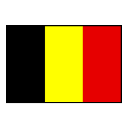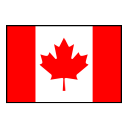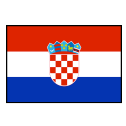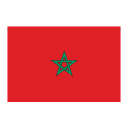ESPN is previewing each of the World Cup's 32 teams ahead of the tournament. Here's what you need to know about the four sides set to do battle in Group F.
Jump to: Belgium | Canada | Croatia | Morocco
Also read: Group A | B | C | D | E | G | H

Belgium
Manager: Roberto Martínez
Nickname: De Rode Duivels (The Red Devils)
FIFA Rank: 2
How they qualified
Belgium finished unbeaten at the top of their group to qualify for the World Cup, having won six matches -- Estonia (twice), Belarus (twice), Wales and Czech Republic -- and drawn twice. They scored for fun (25 times in their eight matches) and only conceded six goals overall. It was another dominant campaign as we are used to seeing from Belgium over recent years.
Style of play
Head coach Roberto Martinez is still keen on the 3-4-2-1 (or 3-4-3 at times) formation which has been successful for him over the years. Eden Hazard and Kevin De Bruyne will be the two creative players behind striker Romelu Lukaku, and this team will play on the front foot and attack a lot. Defensively, they struggle more as they lack pace and have older players (Toby Alderweireld is 34 in March; Jan Vertonghen is 35.)
Biggest strength
This is the last opportunity for Belgium's so-called "Golden Generation" to finally win something. They have come close -- four years ago in Russia and even more recently in the Nations League -- but they have always lacked something. They have the best goalkeeper in the world in Thibaut Courtois and the best midfielder in the world in De Bruyne, so things can happen for Belgium. There is talent and youth in this squad and Martinez will have big calls to make, especially if Hazard and Lukaku are not fully fit.
Biggest weakness
The fitness of key players is the main issue here and the main weakness for Belgium. Lukaku has been injured since August and faces a race to make the final squad, while Hazard has hardly played this season. There will be no time before the start of the tournament for them to catch up with fitness work. The squad is an ageing one, too, unbalanced in certain positions and too much rests on De Bruyne's shoulders in terms of creative responsibilities. The scars from past disappointments in big tournaments (losses to Wales at Euro 2016 in the quarterfinals; France in the 2018 World Cup semifinals; Italy in the quarterfinals at Euro 2020) will weigh heavy on them as well.
Star player: Kevin De Bruyne
The Manchester City midfielder is hitting his best form at the right time. He is decisive for City in the Premier League and in Europe and will arrive at the World Cup in great shape, unlike at Euro 2020. At 31, this could be his last World Cup, so he will want to take the team as far as possible. He will have plenty of freedom to do his thing and the rest of the squad will be hoping that he can inspire them to become one of the teams of the tournament.
Projected starting XI
(3-4-2-1): Courtois; Debast, Alderweireld, Vertonghen; Meunier, Witsel, Tielemans, Carrasco; Hazard, De Bruyne; Lukaku
What the stats say
- Best World Cup finish: Third place (2018)
- Belgium have reached the knockout stage in six of their past seven World Cups.
FiveThirtyEight SPI: 61% chance to make the round of 16, 5% to make the final.
Betting odds: +1200 (via Caesars Sportsbook.)
Prediction
If Belgium can do as well as they did at the last World Cup and finish third, that would be an achievement. They are not going into this tournament with any momentum and are not among the favourites like they were four years ago. However, they are still talented and De Bruyne is a special player who can carry them far. That said, their route after the group stage could be very tricky, with either Spain or the Germany in the round of 16 and potentially Brazil or Portugal in the quarterfinals. I think a quarterfinal exit is a fair prediction. -- Julien Laurens

Canada
Manager: John Herdman
Nickname: Les Rouges (The Reds)
FIFA Rank: 41
How they qualified
Having not qualified for the World Cup since 1986 -- or even the final round of qualifying since 1998 -- Canada had to take the long road. The Reds first had to navigate a five-team group in the first round that included Aruba, Bermuda, the Cayman Islands and Suriname, which they managed with a whopping goal differential of plus-26 over four games. Then came a home-and-away round against Haiti, in which Canada prevailed 4-0 on aggregate.
The aforementioned World Cup drought meant that expectations were tempered heading into the final round. But a 1-1 road draw with the U.S. during the first qualifying window, followed by another 1-1 tie against Mexico at the Azteca in the next window revealed that this Canada side was made of sterner stuff than their predecessors. This was all part of an 11-game unbeaten streak that had Canada at or near the top of the standings throughout the Octagonal. A 4-0 win over Jamaica meant John Herdman's side not only clinched with a game to spare, but finished top of the group, ahead of presumed regional heavyweights Mexico and the U.S.
Style of play
While Canada are capable at times of possessing the ball, they prefer to defend stoutly and nail teams on the counter through the speed of Alphonso Davies and Tajon Buchanan, and the lethal finishing of Cyle Larin and Jonathan David. In terms of formation, Herdman proved to be tactically flexible, playing with four or three at the back when circumstances dictated. But he prefers a three-back alignment and can switch between playing with a lone striker in David or having him play alongside Larin.
Biggest strength
This is a balanced Canada team from front to back, but pace on the flanks through Buchanan and Davies is where this side excels. Opponents will be wise to make sure that neither player gets going in the open field. The Reds also have a forward in David that can torment opposition defences with his movement and finishing. FC Porto midfielder Stephen Eustaquio is also an underrated component with the ability to be effective on both sides of the ball.
Biggest weakness
Given that it's been 36 years since Canada were last in the World Cup, there is a distinct lack of big tournament experience in the group. Granted, with players like David, Larin, Eustaquio and Davies all garnering Champions League experience, this weakness is mitigated somewhat. But this is also a team that seemed greater than the sum of its parts in qualifying. There is concern about Canada's backline, which are short of the kind of club experience that the frontline and midfield have. If the Reds struggle in this area, they will require the likes of Buchanan and Davies to spend more time defending than attacking.
Star player: Alphonso Davies
Davies, who suffered a hamstring injury last week but should still be fit, remains the biggest name in this Canada side thanks to the pedigree of playing for Bayern Munich, with whom he won the 2020 Champions League. But unlike his role with Bayern, Davies will be counted on to take on more attacking responsibilities for Canada, hence his positioning as a wing-back or even a winger.
Canada are far from a one-man team, however, and David is another player to keep an eye on. At the time of writing, he's the leading scorer in Ligue 1, and if he can get consistent service from Buchanan and Davies, he could be a major factor in Canada's hopes of advancement.
Projected starting XI
(3-5-2) Borjan; Johnston, Vitoria, Miller; Buchanan, Kaye, Hutchinson, Eustaquio, Davies; David, Larin
What the stats say
- Best World Cup finish: Group stage (1986)
- The 36-year gap between Canada's World Cup appearances is the second-longest by a CONCACAF team, as the U.S. went 40 years from 1950 to 1990.
FiveThirtyEight SPI: 38% chance to make the round of 16, 13% to make quarterfinals.
Betting odds: +15000 (via Caesars Sportsbook.)
Prediction
The draw did Canada no favors, with Group F including 2018 World Cup semifinalists Belgium, 2018 World Cup finalists Croatia, and Morocco. Could Canada spring an upset and advance? It's possible, but looking at the opposition, progressing past the group stage seems a step too far this side, despite all of their improvements. -- Jeff Carlisle.

Croatia
Manager: Zlatko Dalic
Nickname: The Vatreni (The Blazers)
FIFA Rank: 12
How they qualified
Croatia needed a late own goal from Russia's Fyodor Kudryashov in the final qualifying game to secure their place at the top of the group, leapfrogging the side who were later expelled from the tournament over the invasion of Ukraine. The Vatreni were unconvincing for most of the qualifiers, losing to Slovenia and struggling against both Russia and Slovakia, generally looking somewhat stale and impotent. Manager Zlatko Dalic searched for ways to reinvigorate a team that was going through a transformation, with several heroes of the 2018 World Cup having retired. He did find it eventually, but only after the qualification campaign was over, when the team was infused with some much-needed new blood.
Style of play
Once Dalic had settled on a 4-3-3 (4-1-4-1) formation, he knew he had to do something about the aging defence, unable to stay in high line or play out of the back properly. So Josip Sutalo and Josko Gvardiol -- who are 22 and 20, respectively, and are much more mobile and comfortable on the ball -- have ousted Dejan Lovren and Domagoj Vida from the starting XI. Now star midfielder Luka Modric doesn't need to come back to the edge of his own box to pick up the ball, conserving his energy to dictate play higher up the pitch. This shifted the balance more to possession-based and attacking play, which is also more fun to watch.
Biggest strength
Croatia's classy midfield trio (Marcelo Brozovic, Mateo Kovacic and Modric) have more than 300 caps among them; winger Ivan Perisic has a further 115. They are still the core of the team, practically the same as it was four years ago when they reached the final of Russia 2018 -- only Kovacic, previously not a starter, has replaced Ivan Rakitic, who retired from international football -- and their experience, as well as creativity, are Croatia's main features. Everything else has changed and it's this mixture of old and new that keep Croatia hungry for success. Their squad depth is also remarkable for such a small nation.
Biggest weakness
Having a reliable goalkeeper is extremely important at a major tournament. Croatia's lack of one may be their biggest issue. Dinamo Zagreb's Domagoj Livakovic is No. 1 for now, while Dalic has also used Ivica Ivusic of NK Osijek and Ivo Grbic, Jan Oblak's backup option at Atletico Madrid, and both fared well in important games. However, none of these options are near the level that Danijel Subasic displayed four years ago in Russia.
One could also mention the inexperienced defence, no viable alternative for Brozovic in holding midfield, or the fact that there is no established goal scorer up front.
Star player: Luka Modric
This is still pretty much Modric's team. The 37-year-old midfield maestro has won everything with Real Madrid and has been a part of the national team for 16 years, much of it as Croatia's key player, biggest star and, since 2016, their captain as well. The 2018 Ballon d'Or winner is the most capped player in the nation's history and easily its most internationally successful. If age has slowed him down a bit, he has adapted well and is just as creative and hard-working as he ever was.
Projected starting XI
(4-3-3): Livakovic; Juranovic, Sutalo, Gvardiol, Sosa; Modric, Brozovic, Kovacic; Vlasic, Livaja, Perisic.
What the stats say
- Best World Cup finish: Runner-up (2018.)
- The last World Cup runner-up to reach the next final was Brazil in 2002, when they beat Germany 2-0.
FiveThirtyEight SPI: 51% chance to make the round of 16, 8% to make semifinals.
Betting odds: +5000 (via Caesars Sportsbook.)
Prediction
Croatia are on a similar level as their main group opponents, Belgium. They should have enough to get into the knockout rounds but winning the group could make all the difference. Should they come second, they will probably go out in the round of 16; as group winners, however, they could go one or two steps further. -- Alex Holiga.

Morocco
Manager: Walid Regragui
Nickname: Atlas Lions
FIFA Rank: 22
How they qualified
Morocco didn't break a sweat during their qualifying group campaign, taking a maximum 18 points from six matches as the only African team to win all of their games. They had the best defensive record, conceding just once, while their tally of 20 goals scored was bettered only by Algeria. The Democratic Republic of Congo were also eclipsed 5-2 on aggregate in the playoffs, with a cagey 1-1 draw in Kinshasa succeeded by Morocco's rampant 4-1 victory in Casablanca. Not only did the victory secure the Atlas Lions' progression, it also blew the cobwebs away after an unconvincing AFCON.
Style of play
With new coach Walid Regragui only appointed as the replacement for the unpopular Vahid Halilhodzic in August, Morocco's style could be tweaked for the World Cup, not least because the incoming coach has recalled influential trio Hakim Ziyech, Noussair Mazraoui and Amine Harit. The midfield will be gritty, well organised and technically proficient, while the Atlas Lions' main asset will be Achraf Hakimi, who offers thrust and a touch of class from right-back.
Biggest strength
Morale is high following the departure of Halilhodzic who, despite his pedigree, struggled to get the best out of a talented group and made a few enemies in the process. The atmosphere in the camp dipped, while Ziyech announced his international retirement after being ostracised by the Bosnian coach when the two fell out. Regragui's arrival is seen as a victory for the players, and Morocco subsequently impressed during the September international break. This squad is packed with players with Champions League experience, many of whom were part of the team that were unlucky not to beat Spain four years ago.
Biggest weakness
Youssef En-Nesyri hasn't been the same player he was before suffering a muscle injury in late 2021. He scored 18 league goals during the 20-21 campaign, prompting rumours of a move to Arsenal, but has struck only five goals since the start of last season and is now sidelined again. Some in Morocco fear he may never rediscover his former talent. Without him, Morocco lack a focal point; the likes of Ayoub El Kaabi, Munir El Haddadi, Ryan Mmaee, Achraf Bencharki and Abderrazak Hamdallah have all been given opportunities without truly commanding the starting spot, and Belgium and Croatia in particular will punish the Atlas Lions for missed chances.
Star player: Achraf Hakimi
Ziyech may have returned to the fold, but it's Hakimi who's the Atlas Lions' star man these days. Bombing down the right flank like a Maghrebin Cafu, the Paris Saint-Germain star is only 23 but already has over a half-century of caps to his name. Already eye-catching at the last World Cup, he's improved dramatically since then, winning both the Italian and the French league titles and testing himself regularly in the Champions League. He's a potential match winner for Morocco as well, as he demonstrated with vital goals against Gabon and Malawi at the Nations Cup.
Projected starting XI
(4-3-3): Bounou; Mazraoui, Saiss, Aguerd, Hakimi; Amallah, Amrabat, Ouanahi; Boufal, El-Kaabi, Ziyech.
What the stats say
- Best World Cup finish: Round of 16 (1986)
- Halilhodzic was fired after qualifying, which is the third that has happened to him after getting a team to the World Cup: Ivory Coast (2010) and Japan (2018.)
FiveThirtyEight SPI: 51% chance to make the round of 16, 19% to make quarterfinals.
Betting odds: +20000 (via Caesars Sportsbook.)
Prediction
Morocco were mightily unfortunate in being pitted against Portugal and Spain in Russia, and can similarly rue their luck this time around. However, look at little closer, and both Croatia and Belgium have weaknesses that can be exploited. If the Lions get the balance right, and identify a genuine goal threat, they can realistically hope to reach the knockouts for the first time since 1986. -- Ed Dove, ESPN Africa.
WHAT ELSE YOU NEED TO KNOW
- All World Cup 2022 squads
- World Cup news
- World Cup fixtures
